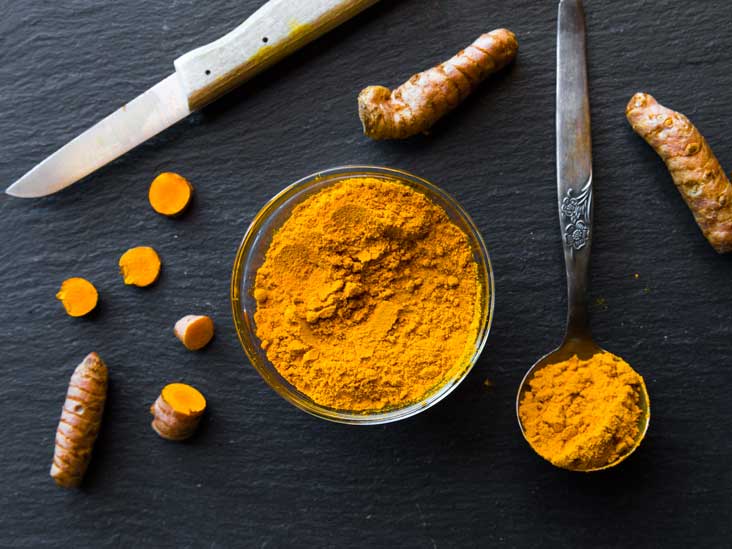Written by Sharon O'Brien MS, PGDip on July 12, 2018
Turmeric is a spice widely used throughout Asia and a main ingredient in curries.
Due to its yellow color, it’s sometimes referred to as Indian saffron (1).
What’s more, its extensive use in traditional medicine has raised significant interest in its health benefits.
Curcumin is the key active ingredient in turmeric.
This article looks at the benefits of and key differences between turmeric and curcumin, and how to supplement with them.
What Are Turmeric and Curcumin?
Turmeric comes from the root of Curcuma longa, a flowering plant of the ginger family.
It’s often sold in spice jars. However, if bought fresh, it looks similar to ginger root with a more intense yellow to golden color.
In India, turmeric is used to treat skin conditions, digestive issues and aches and pains. In fact, it’s a staple of Ayurvedic medicine, a form of traditional healing (2).
Turmeric contains many plant substances, but one group, curcuminoids, has the greatest health-promoting effects (3, 4).
Three notable curcuminoids are curcumin, demethoxycurcumin and bisdemethoxycurcumin. Of these, curcumin is the most active and most beneficial to health (3).
Curcumin, which represents about 2–8% of most turmeric preparations, gives turmeric its distinct color and flavor (5).
In its own right, curcumin is known for its anti-inflammatory, anti-tumor and antioxidant effects (6, 7).
They Have Many Benefits in Common
Turmeric and curcumin have medicinal properties that provide many health benefits (8).
Here are some of the areas in which both turmeric and curcumin have shown clear benefits, backed by science:
- Osteoarthritis: Plant compounds in turmeric that include curcumin can reduce markers of inflammation and thus relieve osteoarthritis symptoms (3, 9, 10).
- Obesity: Turmeric and curcumin may inhibit the inflammatory pathway involved in obesity and may help regulate body fat (5, 11, 12).
- Heart disease: Turmeric and curcumin can reduce “bad” LDL cholesterol and triglycerides and reduce the risk of heart disease as a result (13).
- Diabetes: Turmeric and curcumin can improve blood sugar metabolism and potentially reduce the effects of diabetes on your body (14, 15, 16).
- Liver: A rat study found that turmeric extract and curcumin were protective against chronic liver damage by helping reduce harmful oxidative stress (17).
- Cancer: Though research is still in its early stages, turmeric and curcumin may reduce the activity of colon and other cancer cells (18, 19, 20).
- Antifungal: Turmeric and curcumin can disrupt fungal cell membranes and could be used in conjunction with fungal medication for better outcomes (21, 22, 23).
- Antibacterial: Turmeric and curcumin have strong antibacterial effects. They can reduce the growth of many disease-causing bacteria (23, 24, 25).










/gymnema-sylvestre-4692940-recirc-70ccbec3231b476bbb374c0b282afdbf.jpg)
